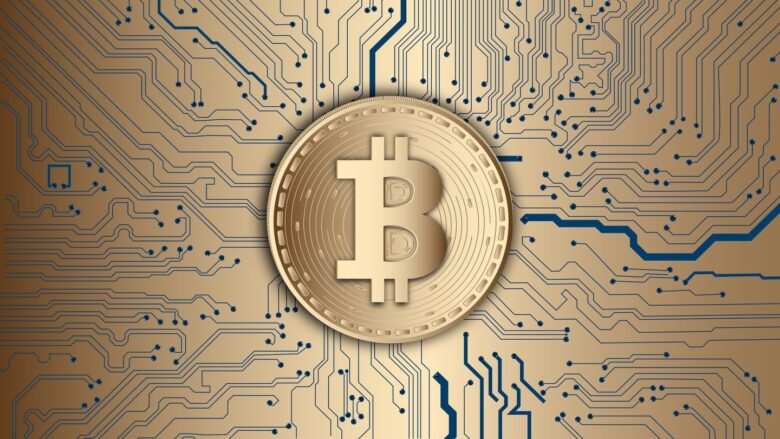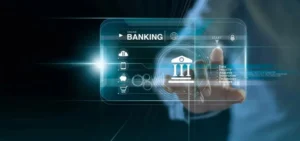Blockchain technology has become one of the most important new technologies of the 21st century and has the potential to transform many sectors. The financial sector is one of the most affected by these changes. The decentralized, open, and secure features of blockchain are increasingly influencing the innovation of smart money: the intelligent use of digital financial instruments. This new technology is transforming how money is stored, transferred, and managed. It is also changing how people think about money by prioritizing speed, efficiency, and trust.
Blockchain Basics
A blockchain is essentially a decentralized digital ledger that immutably records transactions across multiple computers. This creates a permanent and clear record of all transactions, viewable by anyone but unalterable. Because blockchain is decentralized, no central authority such as a bank or payment processor is needed to verify transactions. The future of smart money technology will be built on this decentralization trend, which will democratize asset ownership and reduce reliance on traditional intermediaries.
Enhancing Security and Trust in Financial Transactions
One of the advantages of blockchain for smart money technology is its ability to enhance transaction security. Because transactions are stored in a decentralized ledger and protected by cryptography, the risk of fraud, hacking, or unauthorized manipulation is significantly reduced. A chain of transactions connects each transaction, making it difficult to alter it undetected. This open and immutable nature fosters greater trust between users and institutions. As blockchain becomes increasingly important in the financial system, customers can feel more secure about their money and transaction data, something traditional systems cannot always guarantee.
Faster and Cheaper Payments
Banks and clearinghouses are common intermediaries in traditional payment systems. These intermediaries can cause transaction delays and higher fees. Blockchain-based payment systems make this process much easier, allowing people to transfer money directly without intermediaries. Such an approach not only speeds up payments—sometimes within minutes or even seconds—but also reduces fees, making international transfers more affordable. This means that businesses and individuals can better manage their cash flow and gain broader access to financial services, especially in areas with limited banking infrastructure.
DeFi, or Decentralized Finance
One of the most exciting developments brought about by blockchain technology is the rise of decentralized finance (DeFi). DeFi platforms allow people to borrow, lend, trade, and invest assets without the intervention of banks or other traditional financial institutions. These platforms use blockchain networks and smart contracts to conduct transactions in a transparent and reliable manner. DeFi makes financial services more accessible to people around the world, enabling anyone with an internet connection to participate in the economy. This new ecosystem pushes the boundaries of smart money technology and challenges the way banks have traditionally operated.
Tokenizing Assets, Making Them Easier to Sell
Blockchain also allows for the tokenization of real-world assets. This implies that you can transform assets such as real estate, art, or commodities into digital tokens for purchase, sale, and trade on blockchain platforms. This new concept increases liquidity by allowing people to own fractions of an asset, making previously difficult-to-sell assets more accessible to other investors. Tokenization changes the way people invest and manage their portfolios, facilitating diversification and speeding up transactions. Blockchain-based smart money technology makes capital markets more accessible and efficient.
Improving Transparency and Regulatory Compliance
One of the greatest advantages of blockchain technology is its openness and transparency. Every transaction is recorded and accessible to everyone. This transparency changes the way the financial sector complies with regulations and conducts audits. Regulators have real-time access to data, reducing time-consuming audits and reporting requirements. Furthermore, blockchain’s immutable record makes it harder for criminals to launder money and commit fraud by providing a clear transaction history. This increased openness makes the financial world more secure and helps build trust between regulators, businesses, and consumers.
Empowering People Through Financial Freedom
Blockchain technology gives people more control over their money, a step toward financial freedom. Digital wallets allow users to manage their money, communicate directly with financial institutions, and maintain full control over their private keys. This functionality is particularly important in areas where traditional banks are unavailable or where money is censored. Blockchain-based smart money technology affords people more control over their money, contributing to greater financial inclusion and economic empowerment worldwide.
Issues and the Future
Blockchain and smart money technologies hold enormous potential, but they also face numerous challenges that must be addressed before they can be widely adopted. Issues remain related to scalability, energy efficiency, regulatory ambiguity, and user education. However, new consensus processes are gradually alleviating these problems, and regulations are evolving to protect consumer rights while enabling the development of new ideas. As these issues are resolved, blockchain will become more deeply integrated with smart money technology, ushering in a more decentralized and efficient financial future.
Conclusion
Blockchain will undoubtedly transform the future of smart money technology, enabling the construction of a secure, open, and efficient financial system. Blockchain is revolutionizing the handling of money through decentralization, automation, and tokenization. This makes financial services more accessible, faster, and more reliable. While issues still need to be addressed, blockchain technology is constantly evolving. This means that in the future, smart money technology will empower both individuals and businesses and promote innovation and inclusion in the global economy. Anyone who wants to participate in the next generation of financial services should embrace this technology now.
FAQs
1. What is blockchain? How does it relate to smart money technology?
Blockchain is a digital ledger that securely and publicly records transactions. It supports smart money technology, allowing people to manage their digital assets securely, automatically, and efficiently.
2. How does blockchain improve the security of financial transactions?
Because blockchain is decentralized and uses encryption, transactions cannot be altered or manipulated. This significantly reduces the risk of fraud and unauthorized access.
3. What are smart contracts? Why are they vital?
Smart contracts are self-running digital agreements stored on a blockchain. They can reduce costs, provide greater transparency, and automate financial transactions by eliminating the need for intermediaries.
4. What is DeFi, or decentralized finance?
DeFi is a blockchain-based financial system that allows people to borrow, lend, and trade without a bank. This makes money more accessible and open.
5. Are there risks associated with blockchain-based smart currency technology?
Blockchain has many advantages, but it also has issues that must be resolved before it can be widely used. These include regulatory uncertainty, technological complexity, and growth potential.




